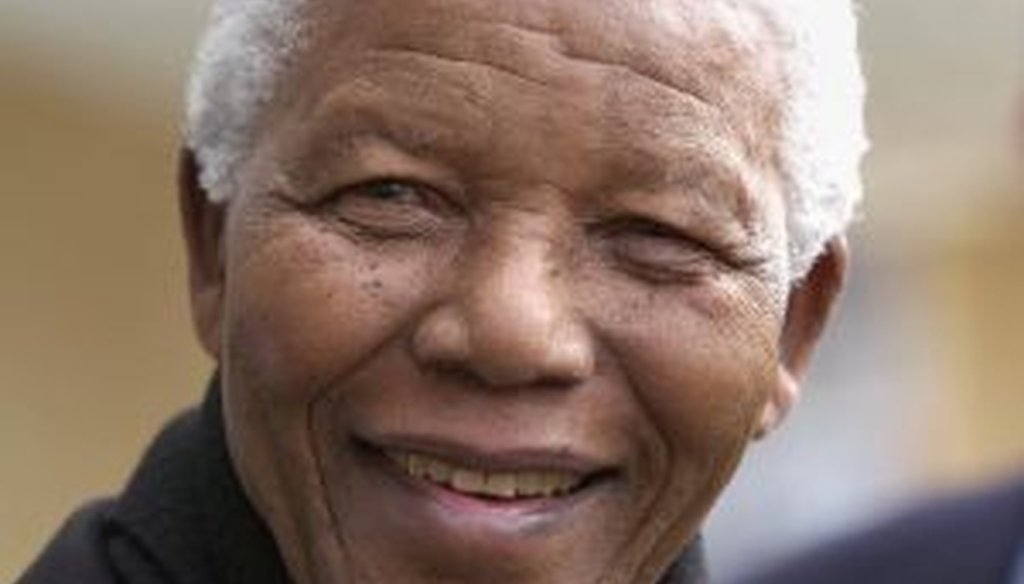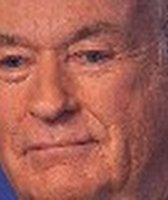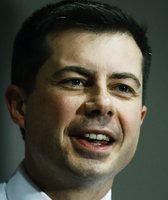Stand up for the facts!
Our only agenda is to publish the truth so you can be an informed participant in democracy.
We need your help.
I would like to contribute

The late South African president Nelson Mandela, pictured at Oxford University in 2002.
Bill O'Reilly says Nelson Mandela 'was a communist'
It’s been almost a quarter century since the Cold War ended. But the recent death of Nelson Mandela has stirred up quite a few old ideological ghosts.
When high-profile Republicans including former House Speaker Newt Gingrich and Texas Sen. Ted Cruz released statements of praise for Mandela after his death on Dec. 5, 2013, they were deluged with negative comments by Americans who felt Mandela was either a communist, a terrorist or both.
On Fox News’ The O’Reilly Factor just hours after Mandela died, host Bill O’Reilly discussed Mandela’s legacy with former Sen. Rick Santorum, R-Pa. The exchange got the most attention for Santorum’s comment equating Obamacare with apartheid -- namely, that "we have a great injustice going on right now in this country, with an ever-increasing size of government that is taking over and controlling people’s lives. And Obamacare is front and center in that."
In this item, however, we’ll be fact-checking a different claim -- the one by O’Reilly that preceded that statement. Mandela, O’Reilly said, "was a communist."
Before looking into the claim, we will note that O’Reilly’s point was more nuanced than this fragment in isolation.
O’Reilly said, "Nelson Mandela -- I spent some time in South Africa. He was a communist, this man. He was a communist. All right? But he was a great man. What he did for his people was stunning -- the sacrifices that he made. He could have repudiated and got out of that prison. He wouldn't do it. He was a great man. But he was a communist."
So was he?
We checked with seven scholars of Mandela and 20th century South African history, and most agreed that Mandela was -- at least for a while -- a member of the Communist Party. However, they added that the label is far from the sum of a very complex political leader.
There has never been much question that the South African Communist Party was an ally of Mandela’s African National Congress. "The Tri-Partite Alliance -- the African National Congress, the South African Communist Party and the labor federation COSATU -- cooperated closely in the fight against apartheid," said Douglas Foster, author of After Mandela: The Struggle for Freedom in Post-Apartheid South Africa.
But the question of whether Mandela himself was actually a member of the Communist Party has always been murkier.
Stephen Ellis, a British historian based in Amsterdam, made waves in 2011 when he published a paper that concluded that Mandela had been a member of the South African Communist Party. The paper was controversial, in no small part because Mandela had suggested throughout his life that he was not.
For instance, during Mandela’s trial for treason, the South African government accused him of being a communist. He had his lawyer challenge the accusation, and it was withdrawn, said Danny Schechter, author of Madiba A to Z: The Many Faces of Nelson Mandela.
In a Dec. 7 column, Bill Keller of the New York Times quoted Mandela saying, "If by Communist you mean a member of the Communist Party and a person who believes in the theory of Marx, Engels, Lenin and Stalin, and who adheres strictly to the discipline of the party, I did not become a Communist."
To Keller, this answer was "both evasive and perfectly accurate."
By the time of Ellis’ paper, Mandela was too ill to be asked about it publicly. But among scholars at least, lingering doubts about Ellis’ finding were largely washed away the day Mandela died.
Upon Mandela’s death, the South African Communist Party released a statement of mourning that revealed that, "at his arrest in August 1962, Nelson Mandela was not only a member of the then-underground South African Communist Party, but was also a member of our Party's Central Committee."
Tom Lodge, a professor at the University of Limerick and author of Mandela: A Critical Life said Mandela "joined the SACP probably in late 1960, early enough to be involved in its decision to adopt a strategy of ‘armed struggle.’ It seems that he had second thoughts about his membership while touring Africa in early 1962."
It’s unclear whether Mandela ever formally resigned, Lodge said, but "certainly by the late 1960s, the Communist Party no longer regarded him as a member." In its statement, the South African Communist Party called him "a great and close friend of the communists till his last days," a phrasing that suggests that he wasn’t actually a party member any longer. There is no indication he was a party member at the time he was elected president after being released from prison.
So the weight of the historical evidence is that O’Reilly was correct to say that Mandela "was a communist." But scholars told us it’s important to leaven this with a few bits of context.
• Mandela was not a communist ideologue. "Mandela is the least ideologically rigid leader I have ever encountered," said John Carlin, author of Playing the Enemy: Nelson Mandela and the Game That Made a Nation. "He was the very opposite of a fanatic. He showed immense respect for all political points of view and never to my knowledge believed he had the answers to the problems of human life, much less the key to heaven on earth, as his Communist brethren might have done."
Indeed, Carlin said, during Mandela’s 27-year imprisonment at Robben Island, he "had long and heated debates with the one big South African Communist Party figure imprisoned there, Govan Mbeki."
Foster said that even if Mandela was officially a Communist Party member for a time, he would not have defined himself that way.
"Nobody who has even a passing familiarity with South African history, and Mandela's role, would describe him as someone with mixed loyalties," Foster said. "He was a disciplined, true-blue member of the ANC through his entire adulthood."
• For decades, there were few allies Mandela could have sought out in the fight against apartheid. At the time Mandela would have been a South African Communist Party member, all liberation groups (including the Communist Party) were banned. And within this small group of opponents of apartheid, only the Communist Party was multiracial.
"The Communist Party in South Africa was attractive to some because it was the only nonracial party at the time for activists who didn't want to be defined ethnically," Schechter said. "For many years, the ANC was only for Africans, the Indian Congress for Indians and the Congress of Democrats for Whites."
Indeed, Keller writes that the legacy of nonracialism was one of the most valuable legacies of Mandela’s alignment with the Communist Party, since it made racial reconciliation possible after the toppling of apartheid. (Keller also lists other, less positive legacies, including "remnants of Communist protocol and jargon (that) live on in the platform and demeanor of South Africa’s ruling party.")
• The Communist Party – due in part to its long fight against apartheid – does not have the same negative connotation in South Africa that it does in the United States. Former South African President F.W. DeKlerk -- who worked with Mandela to end apartheid -- told Schechter that Communist Party leader Joe Slovo "played a pragmatic and crucial role in engineering the compromises that led to a political settlement. … All this ‘commie’ talk obscures more than it reveals."
In fact, "half the members of the present cabinet in South Africa are party members," Lodge added. "It really isn’t an issue."
Our ruling
O’Reilly said that Mandela "was a communist." The weight of the historical evidence shows that O’Reilly is correct. For a time, Mandela -- despite his denials -- appears to have been a member not only of the party but also of its central committee. However, it’s worth noting that Mandela’s affiliation with the party or its goals was never a dominant feature of his ideology or message. We rate O’Reilly’s claim Mostly True.
Our Sources
Bill O’Reilly, The O’Reilly Factor, Dec. 5, 2013 (video embedded in Slate.com)
Martin Plaut, "Why Mandela’s Communist Party membership is important" (blog post), Dec. 8, 2013
PoliticsWeb (South Africa), "Nelson Mandela was a member of our CC at the time of his arrest - SACP," Dec. 6, 2013
Bill Keller, "Nelson Mandela, Communist" (New York Times op-ed), Dec. 7, 2013
BBC, "South Africa's Nelson Mandela dies in Johannesburg," Dec. 5, 2013
ABC News, "Ted Cruz, Newt Gingrich Defend Mandela Against GOP Critics," Dec. 9, 2013
Email interview with Richard Stengel, author of Nelson Mandela: Portrait of an Extraordinary Man and Mandela's Way: Lessons on Life, Love, and Courage, Dec. 8, 2013
Email interview with Gerald Horne, University of Houston historian and author of From the Barrel of a Gun: The United States and the War against Zimbabwe, 1965-1980, Dec. 8, 2013
Email interview with Danny Schechter, author of Madiba A to Z: The Many Faces of Nelson Mandela, Dec. 8, 2013
Email interview with John Carlin, Playing the Enemy: Nelson Mandela and the Game That Made a Nation, Dec. 8, 2013
Email interview with Tom Lodge, author of Mandela: A Critical Life and dean of the faculty of arts, humanities and social sciences and professor of peace and conflict studies at the University of Limerick (Ireland), Dec. 8, 2013
Email interview with Douglas Foster, After Mandela: The Struggle for Freedom in Post-Apartheid South Africa, Dec. 8, 2013
Email interview with Martin Plaut, The Mandela Legacy: The State of South Africa, Past, Present & Future, Dec. 8, 2013
Browse the Truth-O-Meter
More by Louis Jacobson
Bill O'Reilly says Nelson Mandela 'was a communist'
Support independent fact-checking.
Become a member!
In a world of wild talk and fake news, help us stand up for the facts.








































